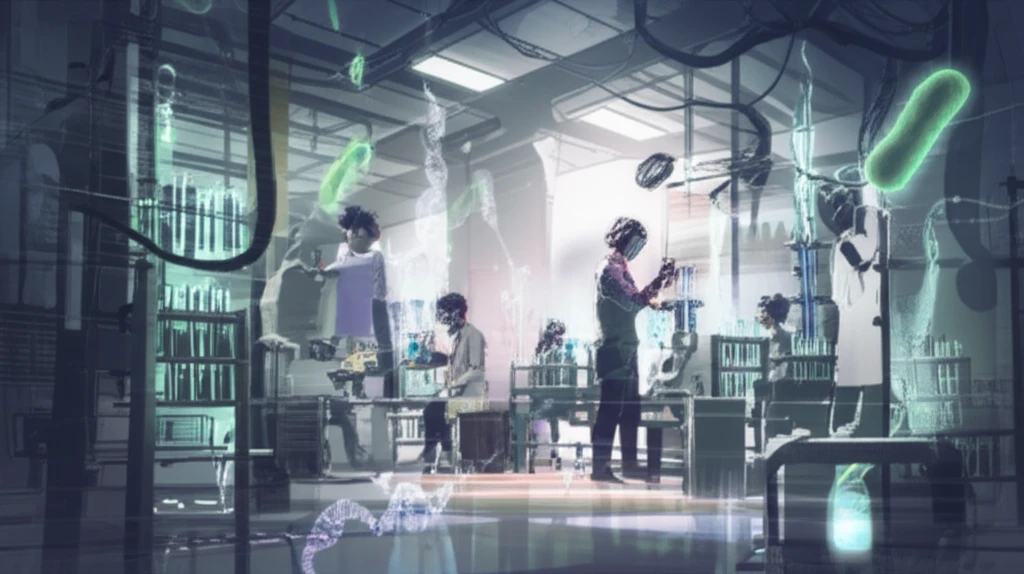
Engineering Life: How Synthetic Biology is Revolutionizing Healthcare and Beyond
"From Probiotics to Novel Enzymes: Exploring the Frontiers of Synthetic Biology and Its Transformative Potential"
Synthetic biology is rapidly emerging as a transformative field, blending engineering principles with biological sciences to design and construct new biological systems or redesign existing ones. This interdisciplinary approach holds immense potential for addressing some of the world's most pressing challenges, from developing innovative therapeutics to creating sustainable solutions for environmental issues.
At its core, synthetic biology aims to create biological systems that perform specific functions, much like engineers design machines. By manipulating DNA, the fundamental building block of life, scientists can program cells to produce drugs, sense environmental toxins, or even create new materials. The possibilities are virtually limitless.
This article explores some of the exciting advancements in synthetic biology, highlighting the work of leading researchers who are pushing the boundaries of what's possible. We'll delve into the engineering of probiotic bacteria for improved health, the discovery of novel enzymes for industrial applications, and the creation of robust genetic circuits for complex biological tasks. Join us on a journey to discover how synthetic biology is revolutionizing healthcare and beyond.
Engineering Probiotics: A New Frontier in Gut Health

The human gut microbiome, a complex ecosystem of trillions of bacteria, plays a crucial role in our health and well-being. Imbalances in the gut microbiome have been linked to a wide range of diseases, including obesity, diabetes, and autoimmune disorders. Synthetic biology offers a promising approach to engineer probiotic bacteria that can restore balance to the gut and improve overall health.
- Enhanced Functionality: Synthetic biology allows for the design of probiotics with enhanced functionalities, such as increased production of beneficial metabolites or improved colonization of the gut.
- Targeted Delivery: Engineered probiotics can be designed to deliver therapeutic compounds directly to the site of action in the gut, minimizing side effects and maximizing efficacy.
- Personalized Medicine: Synthetic biology can enable the development of personalized probiotics tailored to the unique needs of each individual, taking into account their specific gut microbiome composition and health status.
The Future of Synthetic Biology: A World of Possibilities
Synthetic biology is a rapidly evolving field with the potential to revolutionize healthcare, environmental sustainability, and industrial innovation. As our understanding of biological systems deepens and our ability to engineer them improves, we can expect to see even more groundbreaking applications of synthetic biology in the years to come. From personalized medicine to sustainable manufacturing, the possibilities are virtually limitless, promising a future where biology is harnessed to solve some of the world's most pressing challenges.
